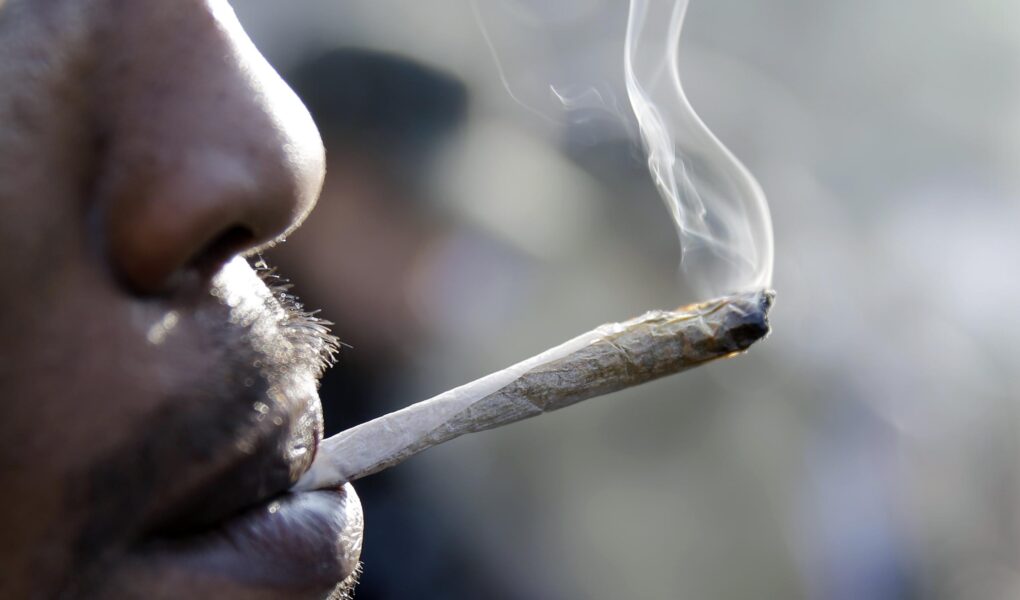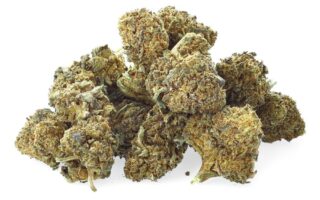In a world where social norms around cannabis are rapidly evolving, the question of whether you can smoke marijuana has sparked conversations that transcend legality. From the cozy living rooms of those seeking relaxation to the bustling streets of cities embracing the green revolution, the implications of smoking marijuana delve into the realms of health, culture, and personal choice. This article invites you to explore the multifaceted landscape of marijuana use—unpacking the nuances of its legal status, the potential effects on health, and the shifting perceptions that shape our understanding of this ancient plant. Join us as we navigate the complexities of cannabis consumption and discover what smoking marijuana means in today’s society.
Table of Contents
- Understanding the Legality of Marijuana Smoking Across Different Regions
- Health Implications: Weighing the Risks and Benefits of Smoking Marijuana
- Tips for Responsible Consumption: Best Practices for Smokers
- Exploring Alternative Methods: Beyond Smoking for Cannabis Use
- Q&A
- In Conclusion
Understanding the Legality of Marijuana Smoking Across Different Regions
Marijuana legislation varies dramatically around the globe, influenced by cultural, social, and political factors. In places like Canada and several U.S. states, recreational use is fully legalized, allowing adults to purchase marijuana from licensed dispensaries. However, in regions such as Asia and many parts of the Middle East, strict penalties exist, often including imprisonment for possession or use. Understanding these differences is crucial for individuals who might travel or relocate, as the legal consequences for marijuana use can range from lax regulations to severe repercussions.
To visualize the legality, here’s a simple overview of marijuana smoking legality across various regions:
| Region | Legal Status for Recreational Use | Notes |
|---|---|---|
| North America | Legal in Canada; legal in some U.S. states | Varies by state |
| Europe | Mixed; legal in some countries like the Netherlands | Often decriminalized rather than fully legal |
| Asia | Generally illegal | Severe penalties in many countries |
| Australia | Legal in some states | Varies by territory |
| South America | Legal in some countries, like Uruguay | Decriminalization is common in others |
Health Implications: Weighing the Risks and Benefits of Smoking Marijuana
When considering the decision to smoke marijuana, it’s essential to weigh both the benefits and risks involved. Research highlights several potential therapeutic advantages, such as:
- Pain relief: Many users report a decrease in chronic pain.
- Reduction in anxiety: Some find marijuana helps alleviate symptoms of anxiety disorders.
- Anti-inflammatory properties: Cannabis may aid in reducing inflammation, benefiting conditions like arthritis.
However, these benefits come with a spectrum of risks that cannot be ignored. Regular smoking can lead to various health consequences, including but not limited to:
- Respiratory issues: Inhalation of smoke can irritate the lungs and lead to chronic bronchitis.
- Cognitive impairments: Heavy use may affect short-term memory and attention span.
- Dependence: A segment of users may develop a dependence on cannabis, impacting daily functioning.
To provide a clearer picture, the following table summarizes the potential health implications associated with smoking marijuana:
| Health Effects | Positive Effects | Negative Effects |
|---|---|---|
| Pain Management | Effective in some chronic pain cases | Risk of over-reliance on the substance |
| Anxiety and Stress Relief | Can provide immediate relief | Potential for increased anxiety or paranoia |
| Lung Health | N/A | May exacerbate respiratory problems |
| Dependence | N/A | Risk of developing dependency issues |
Before making any decisions about marijuana use, it’s crucial to consider these health implications thoroughly. Consulting healthcare professionals can provide personalized insight, helping ensure informed choices that align with individual health circumstances.
Tips for Responsible Consumption: Best Practices for Smokers
Engaging in responsible consumption is key for any smoker looking to enjoy the experience while minimizing negative impacts. Consider these best practices to make informed choices:
- Know Your Limits: Start with small amounts to gauge your tolerance and avoid overwhelming experiences.
- Stay Informed: Research strains and products to understand their effects and potency levels.
- Timing Matters: Choose appropriate times for consumption, such as relaxing evenings or days off, to ensure a balanced experience.
- Respect Environments: Always consider your surroundings and the comfort of others when smoking.
In addition to mindful consumption, prioritize your health and wellbeing by following these guidelines:
| Guideline | Description |
|---|---|
| Hydration | Stay hydrated before and after smoking to mitigate side effects. |
| Healthy Choices | Pair consumption with nutritious snacks to balance effects. |
| Avoid Mixing | Refrain from combining different substances, which can complicate effects. |
Exploring Alternative Methods: Beyond Smoking for Cannabis Use
As the conversation around cannabis expands, many are exploring various alternatives to traditional smoking methods. This shift is driven by factors like health consciousness and the desire for discretion. Here are some popular alternatives to consider:
- Vaporization: Utilizing a vaporizer heats cannabis to a temperature that releases its active compounds without combustion, producing a cleaner inhalation experience.
- Edibles: From gummies to baked goods, these infused products offer a tasty and convenient way to experience the effects of cannabis. The onset may take longer, but the effects can be more intense and longer-lasting.
- Tinctures: These liquid extracts dissolve under the tongue, allowing for rapid absorption and precise dosing.
- Topicals: Infused creams and balms provide localized relief without psychoactive effects, ideal for pain management.
Each method caters to different preferences and lifestyles, making cannabis use more accessible for a wider audience. The table below summarizes the key attributes of each method:
| Method | Onset Time | Duration | Psychoactive Effects |
|---|---|---|---|
| Vaporization | Immediate | 2-3 hours | Moderate to High |
| Edibles | 30-90 minutes | 4-6 hours | High |
| Tinctures | 15-30 minutes | 2-4 hours | Variable |
| Topicals | Variable | 1-4 hours | No |
Q&A
Q&A: Can You Smoke Marijuana?
Q1: What exactly is marijuana?
A1: Marijuana, also known as cannabis, is a plant known for its psychoactive properties, primarily due to compounds called cannabinoids. The most well-known of these is THC (tetrahydrocannabinol), which is responsible for the “high” sensation. In addition to THC, marijuana contains CBD (cannabidiol), which is non-psychoactive and has gained popularity for potential therapeutic benefits.
Q2: Is it legal to smoke marijuana?
A2: The legality of smoking marijuana varies widely around the world. In some regions, it is completely legal for both medicinal and recreational use; in others, it may only be allowed for medicinal purposes, and in some places, it remains illegal altogether. It’s essential to check the local laws before lighting up.
Q3: What are the potential effects of smoking marijuana?
A3: Smoking marijuana can lead to a range of effects, including euphoria, relaxation, altered perception, and increased appetite. However, it may also cause side effects like anxiety, paranoia, or impaired motor skills. Individual responses can vary significantly based on factors such as dosage, strain, and individual tolerance.
Q4: How is marijuana commonly consumed aside from smoking?
A4: Beyond traditional smoking methods, marijuana can be consumed in various forms including edibles (like gummies or baked goods), oils, tinctures, and vaporized products. Each method has different onset times and effects due to how the body metabolizes cannabis.
Q5: What are the health considerations of smoking marijuana?
A5: Smoking marijuana can have respiratory effects similar to those of tobacco, such as cough and bronchial irritation. However, research is ongoing, and the long-term health impacts of cannabis use are still being studied. It’s important to weigh the potential benefits against the risks and consult with a healthcare professional if needed.
Q6: Can smoking marijuana be beneficial?
A6: Some studies suggest that marijuana can have therapeutic advantages, such as relieving chronic pain, reducing inflammation, and alleviating anxiety. However, these benefits can depend on the individual’s health condition, the strain used, and the method of consumption. Speak with a healthcare provider for tailored advice.
Q7: Can you smoke marijuana and drive?
A7: No, it is not advisable to drive under the influence of marijuana. THC can impair coordination, judgment, and reaction times, which can significantly increase the risk of accidents. Many jurisdictions have strict laws against driving while impaired by cannabis, akin to those for alcohol.
Q8: What should I consider before smoking marijuana?
A8: Before smoking marijuana, consider your local laws, your individual health, and any medications you’re taking. Furthermore, understanding how cannabis affects you personally is crucial, as it can vary greatly from one person to another. Always start with a low dose if you’re new to cannabis, and ensure you’re in a safe and comfortable environment.
Q9: Where can I legally obtain marijuana?
A9: In areas where marijuana is legal, it can typically be obtained from licensed dispensaries. Be sure to check the regulations in your area, as they may dictate what forms and quantities are permissible for purchase.
Q10: Is there a responsible way to smoke marijuana?
A10: Yes, smoking marijuana responsibly involves knowing your limits, consuming in moderation, avoiding driving or operating heavy machinery while under its influence, and being mindful of the environment and those around you. It’s also wise to educate yourself about the potential risks and benefits to make informed choices.
In Conclusion
the question of whether you can smoke marijuana extends far beyond a simple yes or no. It invites a complex dialogue about legality, health, culture, and personal choice. As we navigate the evolving landscape of cannabis consumption, it’s essential to stay informed about the laws in your region and understand the potential impacts on both body and mind. Whether viewed as a recreational escape, a medicinal remedy, or a social ritual, marijuana evokes a spectrum of opinions and experiences. Ultimately, the decision to partake is deeply personal, influenced by myriad factors including circumstance, community, and conscience. With an open mind and a cautious approach, individuals can chart their own path in this fascinating realm, ensuring that whatever choice they make is not only informed but also resonant with their own values and goals. As the dialogue continues, let’s keep the conversation going, sharing insights while honoring the diverse perspectives that shape our understanding of this multifaceted topic.



